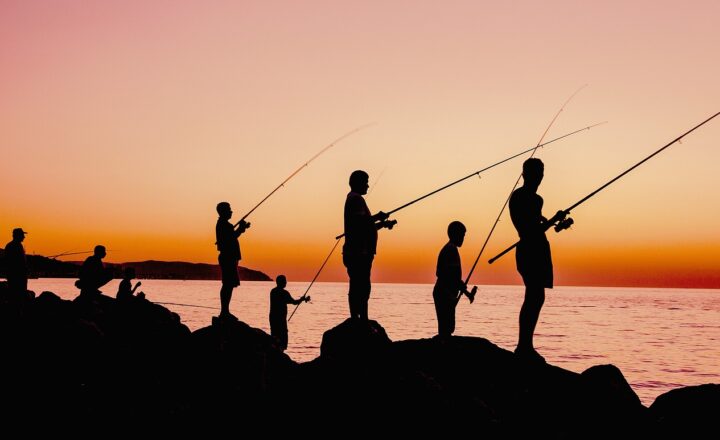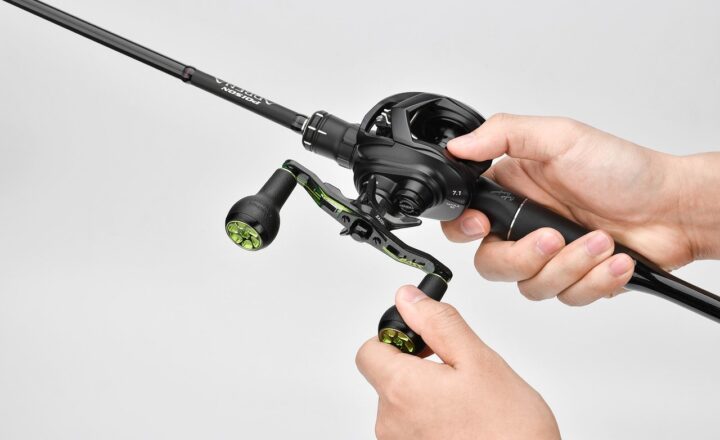Why Sustainable Fishing Practices Are Essential for the Future of Oceans
November 11, 2024

The health of the world’s oceans is at a critical juncture, primarily due to overfishing and destructive fishing practices. As populations continue to grow, and the demand for seafood increases, the pressure on marine ecosystems grows ever stronger. Sustainable fishing practices are not just a responsibility; they are essential for ensuring the longevity of fish populations and the overall health of our oceans.
1. What is Sustainable Fishing?
Sustainable fishing refers to fishing practices that maintain fish populations at sustainable levels while ensuring the health of the marine ecosystem. It entails harvesting fish species in a way that does not lead to their over-exploitation and allows for the replenishment of stocks.
Sustainable fishing methods include:
- Selective Gear Usage: Using nets and gear that minimize bycatch (the capture of unintended species) and prevent damage to habitats.
- Regulated Catch Limits: Setting quotas that ensure fish populations can replenish themselves each season.
- Seasonal Restrictions: Implementing fishing moratoriums during breeding seasons to allow fish to reproduce effectively.
- Community Involvement: Engaging local communities in fishery management and decision-making processes to promote stewardship and sustainable practices.
Sustainable fishing is vital in combating the environmental degradation caused by unsustainable practices which threaten the very future of our oceans.
2. The Importance of Marine Ecosystems
Marine ecosystems provide humanity with numerous essential services. They regulate the Earth’s climate, support biodiversity, and act as a source of food, livelihood, and recreation for millions of people.
Key benefits of healthy marine ecosystems include:
- Biodiversity Support: Oceans house approximately 230,000 known species, with many more undiscovered. Each species plays a unique role in the ecological balance.
- Climate Regulation: Oceans absorb about 30% of carbon dioxide produced by humans, helping mitigate climate change impacts.
- Economic Value: Fisheries contribute over $240 billion to the global economy every year, providing jobs and sustenance to countless communities.
When fishing practices are harmful, the repercussions ripple through these ecosystems, leading to species extinction and habitat loss. As such, fostering sustainable fishing practices is critical for preserving the essential services oceans provide.
3. The Consequences of Unsustainable Fishing
Unsustainable fishing practices have resulted in significant ecological, economic, and social consequences worldwide.
Some of the most alarming impacts include:
- Overfishing: This occurs when fish are caught faster than they can reproduce, leading to dwindling populations. For example, global stocks of marine fish declined by 50% since the 1970s, as reported by the UN Food and Agriculture Organization (FAO).
- Bycatch and Habitat Destruction: Unsustainable methods like trawling and driftnet fishing not only catch target species but also harm non-target marine life, including endangered species and juvenile fish, disrupting the food chain and overall ecosystem health.
- Economic Instability: Communities dependent on fishing for their livelihood suffer due to declining fish stocks, leading to unemployment and food insecurity. Moreover, the economic burden from the decline in marine resources can reach into billions globally.
Addressing these issues requires a collaborative effort to shift towards sustainable practices that restore fish populations and protect marine ecosystems.
4. Sustainable Fishing Practices in Action
Many countries and organizations are adopting sustainable fishing practices as a means to protect their marine resources and safeguard livelihoods.
Examples of initiatives include:
- Marine Protected Areas (MPAs): MPAs restrict human activity in designated zones to foster recovery and restoration of marine biodiversity. An example is the Great Barrier Reef Marine Park, which helps conserve coral reefs while supporting sustainable tourism and fishing.
- Certification Programs: Labels such as the Marine Stewardship Council (MSC) identify and promote sustainable fisheries, helping consumers make informed choices while driving demand for responsibly caught seafood.
- Community-Based Management: In many areas, local fisheries are recognizing the benefits of community-driven management systems, where stakeholders—from fishermen to environmentalists—collaborate to manage fish stocks sustainably.
These practices show that by integrating local knowledge, scientific research, and stakeholder engagement, they can maintain the delicate balance of marine ecosystems while ensuring the livelihoods of local communities.
These efforts, however, require consistent monitoring, enforcement, and collaboration among different stakeholders to ensure their long-term success.
5. The Role of Consumers in Promoting Sustainability
As consumers, individuals hold significant power in influencing sustainable practices in the fishing industry.
Ways consumers can promote sustainable fishing include:
- Making Informed Choices: Look for seafood products that carry sustainable seafood certifications, which indicate responsible fishing practices.
- Supporting Local Fisheries: Purchase fish from local, small-scale fisheries that adhere to sustainable practices and are less harmful to ecosystems.
- Advocating for Change: Engage with local and global initiatives aimed at promoting sustainable fishing regulations and policies. Supporting organizations focused on protecting the oceans can significantly amplify the impact of conservation efforts.
Every choice a consumer makes can create ripple effects, influencing demand for sustainable options and pushing industries to adopt better practices.
Conclusion
Sustainable fishing practices are not merely an option; they are a necessity for the health and preservation of our oceans. The consequences of unsustainable fishery practices can be devastating, leading to depleted fish stocks, loss of biodiversity, and economic instability for communities reliant on fishing.
By understanding sustainable fishing, supporting global initiatives, and making informed choices, it is possible to ensure the longevity of marine ecosystems for future generations. Addressing the issues we face today requires unified efforts from governments, fisheries, communities, and consumers alike. Together, proactive measures can turn the tides and nurture the health of our oceans for years to come. Every fish count, every choice matters, and it is vital to elevate awareness about sustainable fishing for the survival of our waters and the vast life they harbor.








